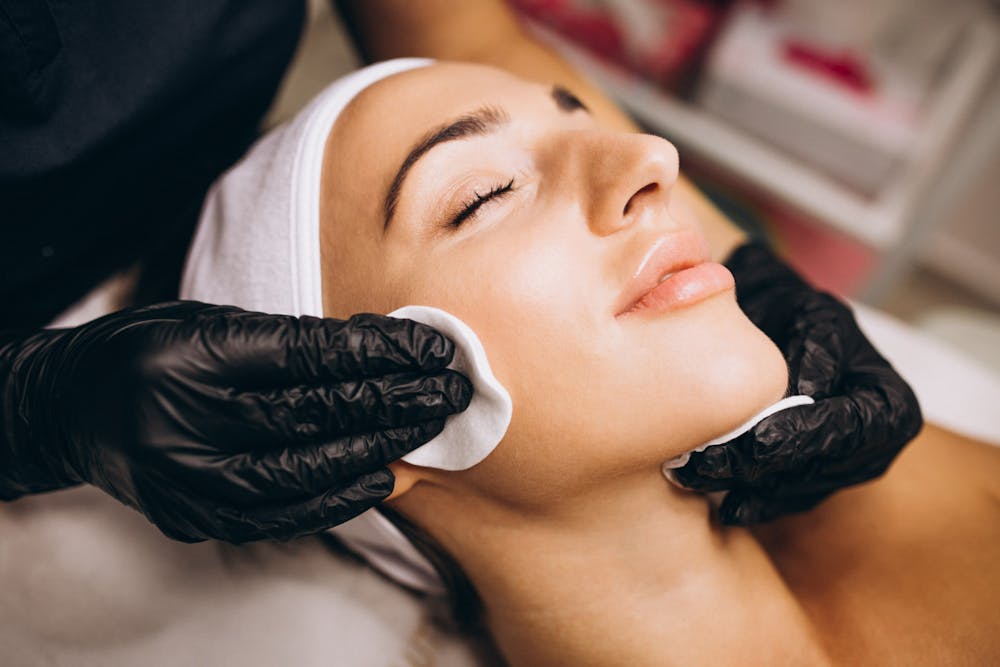
Many of us dream of having healthy, glowing skin and are often quick to treat or cover up even the smallest imperfection in our pursuit of an even tone. But, for those suffering from melasma, blotchy patches spread across a large portion of the face, making it difficult to hide with makeup. The heartening news is that melasma can be treated effectively with a personalized plan developed by experts, and there are few more qualified than the specialists at Elevé.
What is Melasma?
Melasma is a condition that produces hyperpigmentation (darkening of the skin), most often presenting as brown or gray patches across the face, chest and neck. Sometimes called the “pregnancy mask,” melasma is most commonly experienced by women between the ages of 20 and 50.
What Causes Melasma?

The underlying cause of melasma still remains a mystery. And while science tells us that heredity is a significant factor, experts have identified many other triggers:
Pregnancy, Oral Contraceptives
Many women experience melasma during pregnancy or while taking oral contraceptives due to changes in hormone levels. A rise in certain hormones, like progesterone, can increase melanin production.
Sunlight
UV light stimulates the body’s production of melanin, and skin is affected in multiple ways when it isn’t protected from sun exposure. First, sunlight can darken existing melasma. Secondly, UV light and heat can trigger or “wake up” dormant melasma, causing it to appear.
Skincare Products
Scented cleansers and moisturizers can aggravate the skin and make melasma worse.
Options for Treating Melasma

To be clear, melasma can be challenging to manage, especially if one sticks to store-bought skincare products. The best avenue of treatment is through a personalized treatment plan developed by a professional skincare team. Often the solution will be a combination of topical applications and in-office treatments. There is no cure for melasma, but advanced aesthetic treatments and medical-grade skincare are proven to dramatically reduce the appearance of the condition’s characteristic blotchiness. Below are some of the melasma treatment options used by the specialists at Elevé:
HALO® – A revolutionary laser treatment by Sciton®, HALO® provides unmatched improvement in the visible signs of skin aging, including pigmentation and sun damage. The technology penetrates deep into the dermis, reducing discoloration in skin tone and stimulating collagen production to smooth and tighten skin and contract pores. HALO®’s unique hybrid design uses dual wavelengths to resurface both the epidermis and dermis simultaneously to deliver dramatic results.
Chemical Peels – Superficial chemical peels accelerate skin exfoliation, reducing the appearance of pigmentation and improving the overall condition of a patient’s skin.
Prevention

One of the most effective treatments for melasma is prevention. Following these steps can help keep melasma at bay:
Apply Sunscreen Daily. Because UV rays can easily trigger or worsen melasma, it’s important to use medical-grade sunscreen with an SPF of 50 or higher daily, regardless of whether the sun is out or not.
Shield Skin from Direct Sunlight. Wear a wide-brimmed hat to further protect your face while outside.
Use Gentle Skincare. Anything that irritates your skin is likely to exacerbate your melasma.
Determining the right treatment plan for your melasma depends largely on the severity of your condition, your skin tone, and what’s believed to be causing your symptoms. It requires specialized care, and the team of experts at Elevé will always take the time to explain why they recommend products and procedures deemed most beneficial to you. Call 715-847-0000 to schedule a consultation today!


